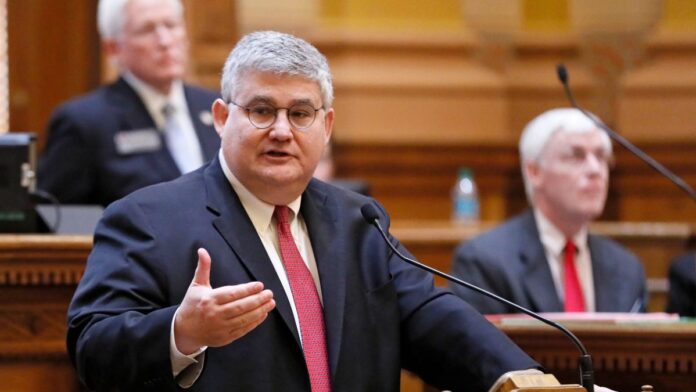Georgia Republican Party Chairman David Shafer is making headlines as he attempts to pin the blame for the fake elector scheme on former President Donald Trump’s legal team. As investigators close in on the plot that aimed to nullify the 2020 presidential elections, Shafer’s defense is raising eyebrows.
According to CNN and The Atlanta Journal-Constitution, Shafer’s lawyers claim that he was merely following the “repeated and detailed advice” of Trump’s legal team when appointing himself and others as “contingent” Republican electors. Shafer’s attorneys conveyed this position in a letter sent to Fulton County District Attorney Fani Willis, whose office is investigating the fake elector’s plot along with other attempts by Trump and the Republican Party to overturn Georgia’s official election results.
Shafer’s lawyers argue that he was merely following the instructions of “legal counsel.” As such, there could be no “criminal intent or liability” involved in the creation of a new group of “electors” who voted for Trump on December 14, 2020, while the officially designated Georgia electors cast their votes for Joe Biden.
However, this defense is unlikely to hold water, as there is no legal exemption allowing individuals to commit crimes simply because a lawyer advised them to do so. Whether Shafer’s actions truly amount to a criminal conspiracy remains to be seen, but similar teams of “alternate” electors from other states appear to be in serious legal trouble for attempting to pass themselves off as genuine electors in a fraudulent manner.
Shafer’s only potential defense could be that he was misled by Trump’s legal team and other Republicans about the intended use of his fake “electoral” votes. He has claimed he had “no knowledge” of the Republican plot to substitute uncertified “alternate” electors on January 6, with then-Vice President Mike Pence’s help. However, this plan was widely circulated then, making Shafer’s claim of ignorance less than convincing.
Furthermore, Shafer’s legal troubles may stem from a more mundane issue. At least eight of the 15 fellow fake “electors” have agreed to testify in exchange for immunity after Willis warned them they were criminal targets of her investigation. The questions about how Shafer convinced them to sign on as “electors” and what claims he made while doing so are likely to be a primary focus for investigators.
While Shafer may be seeking an immunity deal himself, his chances of securing one are slim if Willis already has half of the supposed electors willing to testify while he continues to assert ignorance. The defense of “just following the advice of Donald Trump’s lawyers” is, to say the least, a weak one, and if that’s all he’s got, he may be in deeper trouble than he realizes.



